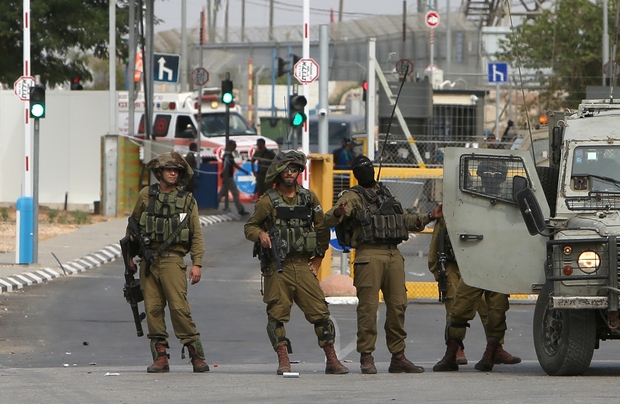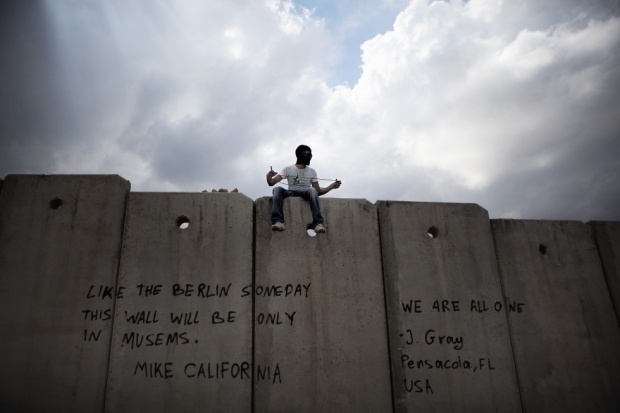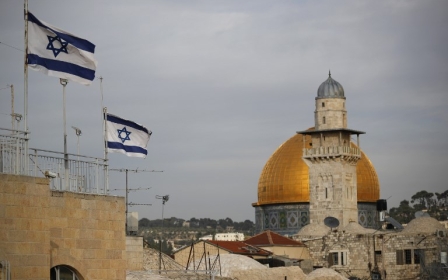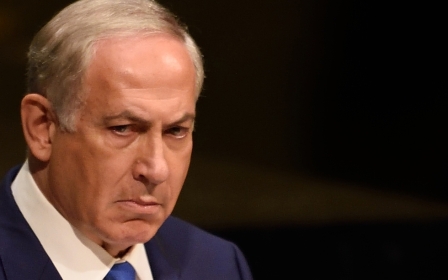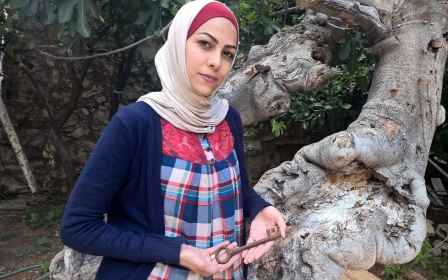Israel split my family in two
I came to Palestine in 2004 at the height of the Second Intifada, as my natural and almost insatiable curiosity got the better of me. I went there to see for myself, to meet people, to get a sense of the situation, and hopefully to understand.
Life there was, surprisingly, very enjoyable. It didn’t feel like a “conflict zone”, thanks to the prevailing mindset that one quickly takes on in Palestine: each new day is a continuation of the last, a succession to be accepted without complaining, despite the difficult circumstances.
Before long, I settled in and found myself confronted by Israeli administration and the intricacies of applying for a visa. I was single at the time, so all the bureaucratic bullying affected only me and my family in France. But that all changed in 2008, when I got married and became the mother of two boys.
A hidden facet of Palestine’s occupation
In countries governed by law, family reunification conventions may vary, yet rarely do we experience what goes on in Israel, where anything seems possible and laws are violated with impunity.
Logic would dictate that family reunification requests would be granted (or refused) by the country of origin of the applicant’s spouse - in my case, the state of Palestine. This is precisely where the occupation reveals one of its hidden facets - not necessarily the darkest, but certainly the most liable to turn your life into a nightmare.
My family reunification application was subject to the administration of the occupiers, not the Palestinian Ministry of Social Affairs in Ramallah. The latter was only an intermediary, a simple bureaucratic lever that transferred my file to the occupier.
I knew I was likely to be sent back to France against my will at the first Israeli checkpoint; I wanted to be the one to choose that moment, the moment I would decide to leave
In other words, I was subject to the whims of Israeli authorities, whose decisions fluctuate according to domestic politics and an international road map intent on pointing to the so-called “threat” hanging over Israel - as if this could justify its many crimes, from the imprisonment of children, to the destruction of homes, to the rejection of international law, and so on.
As a French citizen, I naturally went to my country's consulate in Jerusalem for help at the time. I was teaching French at the French Institute in Jerusalem and the French cultural centre in Ramallah, and I talked to a number of diplomats and ministers on official visits about my case.
After each of these meetings, I would get my hopes up and almost forget all of the years I had been trapped in the city where I had chosen to live, Ramallah. I knew I was likely to be sent back to France against my will at the first Israeli checkpoint; I wanted to be the one to choose that moment, the moment I would decide to leave.
‘Count on me’
Several officials promised to transfer my file to the proper Israeli authorities. I will never forget the words a former minister said to me one day: “I am meeting Prime Minister [Benjamin] Netanyahu this afternoon. You can count on me to back your case.”
Another particularly devastating statement, as nothing ever came of it, was when I was told “a letter has been sent from Quai d’Orsay [the French foreign ministry] to the Israelis” - but then, radio silence.
The useless diplomatic jockeying rapidly convinced me that French authorities would never clear up my situation. It wasn’t that they didn’t want to help, but simply that few of them could or would confront Israel.
The repercussions have been devastating. I am the mother of two boys with a Palestinian father. In January 2016, after living in Palestine for more than 10 years without a visa, I was forced to leave the territory with my children. Israel simply denied me the right to live where I wanted, where my children were born, where my husband wants to live.
This policy of either granting or denying visas, of regularising or not regularising the situation of spouses, basically makes life hell. Every night, you go to bed wondering whether you’ll be woken up by soldiers who have come to pick you up and put you on a plane because, in the eyes of Israel, you are an “illegal”. But the truth is, I don’t even want to live in Israel. I want to live in Palestine.
How can you impose such a life - governed by your ever-growing paranoia - on your children? Yet, on the other hand, how can you force your children to leave their native country, to abandon their home, their school and their friends?
These policies are enacted to force us out of the occupied territory - to justify, a little more each day, the illegal expansion of Israel.
One case among many
Unfortunately, I am not alone in this situation. A number of other French women have been forced to confront the same bureaucratic policies of occupation. If you are married to a Palestinian from the West Bank, Jerusalem or Gaza, your visa request, your legality, and therefore your family life, depends entirely on the enormous Israeli/West Bank occupation apparatus.
As for my compatriots, their cases may all be different, but they expose the same reality: the impossibility of leading a “normal” family life in Palestine.
Two of us have given birth to children in Jerusalem, yet Israeli authorities have refused to grant them birth certificates. It is impossible to have your child officially recognised without this certificate, normally issued with each and every birth. How can we possibly adapt and respond to such a state of affairs?
In Jerusalem, one of these French wives has been in an irregular situation with her two children since 2015. Her family reunification application was turned down, and Israeli authorities have refused to register the birth of her children. “You live on the wrong side of the wall,” she was informed - on the Palestinian side of the separation wall built by Israel, that is. Without a birth certificate and local identity number, her children do not have access to any social benefits.
In another case, a doctoral student at a French university funded by the French government - but married to a Palestinian from the West Bank - was denied a work visa by Israel, which instead granted her a “Judea and Samaria” visa, basically making it impossible for her to leave the West Bank or travel to Jerusalem.
Imagine conducting doctoral research on an international subject and being compelled to make all of your trips through a neighbouring country (Jordan), tripling the cost and duration of each trip. Imagine being separated from your child every time you cross a border because your child happens to be Palestinian.
Turning a blind eye
Another case involves a compatriot married to a Franco-Palestinian, the victim of relentless Israeli pursuit who, after spending seven years in prison with a file described by the minister of foreign affairs at the time, Alain Juppe, as “blank”, was once again imprisoned without charge for nearly a year.
His wife, then working at the French consulate in Jerusalem’s Service of Cooperation and Cultural Actions bureau, was refused entry into Israel despite holding a valid visa. She was six months pregnant at the time, but this did not stop Tel Aviv airport security guards from holding her for three days. Since 2016, she and her son have been unable to return to their home in Jerusalem.
In Hebron, a French woman waiting for family reunification papers is forced to leave the territory with the expiration of each new visa every three months, sometimes even less. She is the mother of two children.
In another case, a French professor at a Palestinian university was refused reunification on the grounds that she was working. When her visa came up for renewal, she was asked to resign from her job if she wanted to remain in the country with her husband and child. Pregnant at the time, she was forced to choose between staying and giving birth illegally in the Palestinian territories, or leaving, with the uncertainty of being able to return.
How can we go on turning a blind eye to these situations, waiting quietly for the diplomatic process to catch up with our lives and deliver real, long-term solutions? Our applications are passed from one office to the next by a host of ever-changing bureaucrats. Our cases are never fully heard or understood. We have no other choice but to stand up and fight for our fundamental rights.
Shattered lives
These struggles also have an economic impact. We are forced to pay lawyers in the hopes of one day being granted one of our most basic rights: to live with our spouses and children in the country of our choice, and to ensure that our children have the fundamental right to live with both of their parents in Palestine.
These stories show what daily life is like for seven French women married to Palestinians and their 11 children. These examples no doubt reflect those of all foreigners married to Palestinians.
They are a mere drop in the ocean of Palestinian suffering, of course. Yet they are the stories of damaged, and at times completely shattered, lives at the mercy - down to even the smallest detail - of the authorities of the occupation.
- Lucia Cristina Estrada Mota is a French photographer who lived in the West Bank for 12 years, from 2004 to 2016.
The opinions expressed in this article are those of the author and do not necessarily reflect the editorial policy of Middle East Eye.
Photo: Jalazone refugee camp north of Ramallah in the occupied West Bank (Courtesy of Lucia Cristina Estrada Mota)
This article was translated from Middle East Eye's French website
New MEE newsletter: Jerusalem Dispatch
Sign up to get the latest insights and analysis on Israel-Palestine, alongside Turkey Unpacked and other MEE newsletters
Middle East Eye delivers independent and unrivalled coverage and analysis of the Middle East, North Africa and beyond. To learn more about republishing this content and the associated fees, please fill out this form. More about MEE can be found here.



